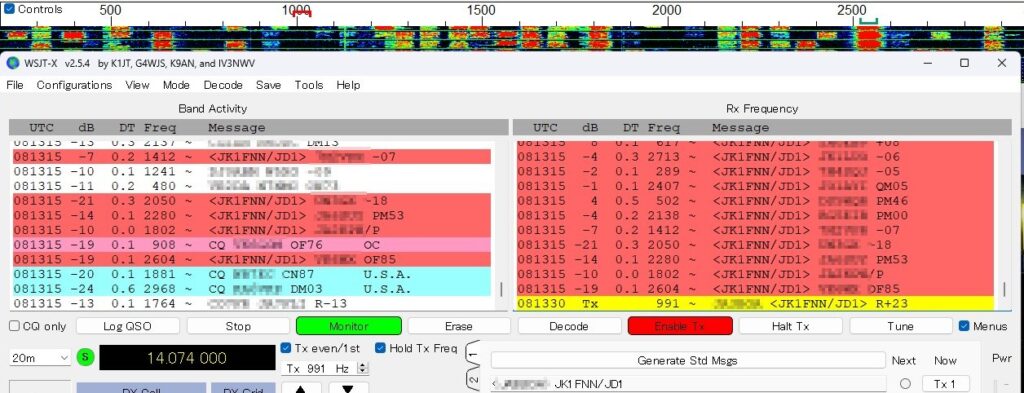It’s been a quarter of a century, but there was a time when I would go diving in various places overseas and get a callsign there and enjoy a “DX vacation”.
I didn’t intend to cut into my diving time to do radio, but I would only go on the air in my free time after returning to my accommodation (although I often operated until late at night). I was a minor entity in DXCC, but in the IOTA category, I was quite rare.It was also the peak of cycle 23.
When I went to such places, I would announce it on DX news, but it was a burden to have people expect too much from me, and it was lonely when no one called me. I would do CW in the evening (PHONE is not suitable because it is noisy at night), and when I started to feel sleepy, I would do semi-automatic RTTY.
Of course, there was no FT8 at that time, but I think that FT8 by “MSHV” is the best for such situations now. This is because it solves all of the following “DX Vacation dilemmas.”
■After playing elsewhere, I want to be on the radio in my spare time.
■I can’t stay on the radio for that long (it’s tiring…..), and self-spotting would be too much, so I’ll go on “common 074.”
■It’s not that rare, but when I go on, I get called a lot.
■Well, it’s only for a short time, so I can get away with it “Sorry to bother you for a while…”, but it’s still annoying if I don’t get it done quickly.
The image below is 14.074MHz, which the authorities recently operated from Ogasawara. It’s not rare enough to announce or use 14.080, etc. Even so, if I go on it, this is what happens.
This time I used WSJT-X, which I use all the time. MSHV is a tool for serious DX-peditioners, and I never thought it would be the perfect software for me to use in this situation.
With WSJT-X, I would have to deal with the bright red radio signals shown above at a rate of one station per minute, but if I use MSHV, the processing power doubles. Furthermore, if I use two slots, the processing power increases fourfold, but in fact, MSHV is designed so that multi-slots do not work with the widely used “**.074”. This seems to be a design policy that says, “If you are called in a situation where you need to use more than two slots, announce it in advance or self-spot and use a non-standard frequency,” which I think is a reasonable idea.
Also, we cannot use multi-TX slots unless we are in “TX 1st (even)”. This is probably the same logic. But just being able to operate like an automatic two-shift with one slot is a big help.
However, this MSHV has a fatal problem that makes it unsuitable for “DX Vacation.” This will be discussed in the next section.
→To the next page
→Back to Index